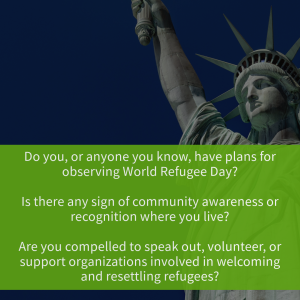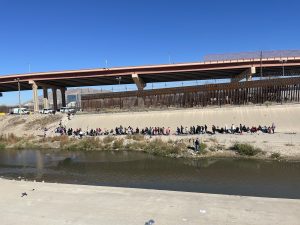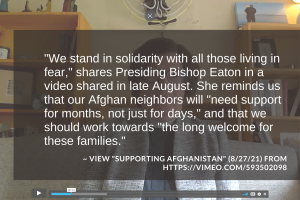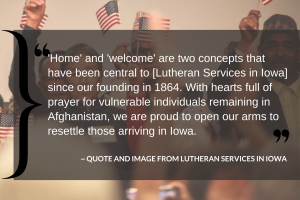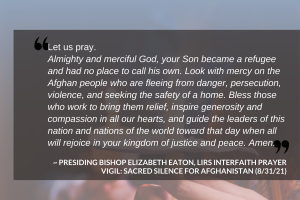
Know Your Rights Information
Everyone in the United States has certain rights guaranteed under the U.S. Constitution, regardless of immigration status. Given the heightened levels of uncertainty and fear in communities, noncitizens and citizens alike may require even greater accompaniment and comprehensive support during this time and months ahead. Depending on someone’s individual circumstances it may make sense to talk to a lawyer for more specialized assistance. The resources listed below can help communities stay generally informed, prepared, and united in support of immigrant neighbors.
Note: This information is not a substitute for advice from a lawyer. Laws may vary by state.
SUGGESTED RESOURCES
General Know Your Rights Resources
Red Card: This guide provides basic information about important practices to remember during encounters with law or immigration enforcement. You can print the Red Card which can be handed to an officer to assert your rights.
- Immigration Legal Resource Center: How to use your Red Card [ Spanish | Tagalog | Tongan]
- Immigration Legal Resource Center: Red Cards [ Spanish | Arabic | Haitian Creole | Tagalog]
Your Rights: You have certain rights if questioned or pulled over.
- ACLU: If law enforcement asks [ Spanish | Urdu | Arabic | Haitian Creole | Simplified Chinese]
- USAHello: basic rights [Spanish | Arabic | Persian | Swahili]
- If you believe that an enforcement action has been taken in violation of any person’s legal rights, you can file a complaint. DHS Office of the Inspector General by phone at (800) 323-8603 or through dhs.gov and DHS Office for Civil Rights and Civil Liberties by phone at (866) 644-8360 or through dhs.gov/publication/file-civil-rights-complaint
What to do if ICE comes to your door?
- Informed Immigrant: If ICE comes to your door
- ACLU: If ICE is at your door [Spanish | Urdu | Arabic | Haitian Creole | Russian | Mandarin]
What to do if ICE comes to your workplace?
- Informed Immigrant: If you are at work
What to do if ICE questions, detains, or arrests you as a U.S. Citizen?
- iAmerica: ICE interactions with U.S. citizens
What to do in an immigration raid?
- Informed Immigrant: How to Prepare For Immigration Raids
- Catholic Legal Immigration Network, Inc.: Rapid Response Toolkit to Help Advocates Prepare Their Communities For ICE Raids And Detentions
- Tennessee Immigrant & Refugee Rights Coalition: A Toolkit for Organizations Responding to Mass Worksite Immigration Raids
- NNIRR has gathered a list of national, state and local Immigration Hotlines: Immigration Hotlines
What is a family preparation plan? A family preparation plan is a comprehensive plan in case of immigration emergencies, regardless of immigration status. Many organizations provide step-by-step instructions.
- Immigrant Legal Resources Center: Step-by-Step Family Preparedness Plan [Spanish]
Information by Category
Adjustment of Status and Naturalization/ Ajuste de estatus y naturalización
- Catholic Legal Immigration Network Inc.: Creating a Citizenship Preparation Program Toolkit
Asylum/Asilo
- Asylum Seeker Advocacy Project: Consider Taking These Steps Before January 2025 [Spanish]
Deportation Defense/ Defensa contra la deportación
What is deportation defense? Deportation defense can include community-led campaigns to stop the deportation of community members using legal interventions and community advocacy to highlight that community member’s contributions to society.
¿Qué es la defensa contra la deportación? La defensa de la deportación puede incluir campañas dirigidas por la comunidad para detener la deportación de miembros de la comunidad mediante intervenciones legales y la defensa de la comunidad para que se resalten las contribuciones de ese miembro de la comunidad a la sociedad.
- Make the Road New York: Deportation Defense Manual [en español]
Deferred Action for Childhood Arrivals/ Acción Diferida para los Llegados en la Infancia
What is DACA? DACA has allowed young immigrants who grew up in the U.S. to seek temporary protection from deportation and to have the ability to work. It’s fate is currently being litigated in the courts.
¿Qué es DACA? DACA ha permitido a los jóvenes inmigrantes que crecieron en los EE.UU. buscar protección temporal contra la deportación y poder trabajar. Su futuro se debate actualmente en los tribunales.
- National Immigration Law Center: Frequently Asked Questions: Latest on DACA
Deferred Enforced Departure/Salida obligatoria diferida
What is DED? DED allows foreign nationals to be protected from deportation and have the opportunity to work. DED is granted through the President’s foreign relations power.
¿Qué es el DED? La DED permite a los extranjeros estar protegidos de la deportación y tener autorización de trabajo. La DED se concede a través del poder de relaciones exteriores del Presidente.
- USAHello: What should people know about the Humanitarian Parole changes? Read more here.
Non-Immigrant Visas/ Visado
- Cornell Law School & President’s Alliance on Higher Education and Immigration: FAQ Regarding Biden’s Nonimmigrant Visa Policy Changes
- Higher Ed Immigration Portal: Sponsoring DACA Recipients and other Dreamers for Employment-Based Visas
Sensitive Locations/ Áreas protegidas
- Global Refuge: Read an FAQ on Sensitive Locations/Protected Areas (Updated Jan. 2025)
- Global Refuge: ¿Qué deben saber las comunidades sobre la política de áreas protegidas? Más información aquí (Actualizado enero 2025)
Temporary Protected Status/ Estatus de Protección Temporal
What is TPS? TPS may be designated by the Department of Homeland Security in cases of ongoing armed conflict, environmental disaster, or other extraordinary and temporary conditions which prevent individuals from safely returning home. Individuals must meet certain presence requirements but may be eligible to remain in the country during the designation period and obtain work authorization.
¿Qué es el TPS? El TPS puede ser designado por el Departamento de Seguridad Nacional en casos de conflicto armado, desastre ambiental o en otras condiciones extraordinarias y temporales que impidan a las personas regresar a sus hogares de forma segura. Las personas deben cumplir ciertos requisitos de presencia, pero pueden ser elegibles para permanecer en el país durante el período de designación y obtener autorización de trabajo.
- Visit uscis.gov for more information.
- Catholic Legal Immigration Network Inc.: Latest on TPS and DACA
- Alianza America: Re-registration Information for beneficiaries from El Salvador, Honduras, and Nicaragua [en español]
- CLINIC: What should people know about 2023 TPS for Venezuela cancellation? Read more here.
Unaccompanied Children & Sponsors/ Menores no acompañados y sus patrocinadores
- ImportaMi/International Rescue Committee: Know Your Rights Guide for Immigrant Children and Young Adults [en español]
CRISIS RESOURCES / RECURSOS DE CRISIS
Find Legal Help/ Encuentre ayuda legal
- Go to www.ailalawyer.org to connect with a lawyer in your area.
File a Civil Rights Complaint/ Presentar una denuncia por violación de los derehchos civiles
- If you believe that an enforcement action has been taken in violation of any person’s legal rights, you can file a complaint. DHS Office of the Inspector General by phone at (800) 323-8603 or through dhs.gov and DHS Office for Civil Rights and Civil Liberties by phone at (866) 644-8360 or through dhs.gov/publication/file-civil-rights-complaint
Find Mental Health Help/ Encuentre ayuda para la salud mental
- National Alliance on Mental Health (NAMI) Helpline: 800-950-NAMI (6264) or reach out to info@nami.org
- Substance Abuse and Mental health Administration (SAMHSA) Helpline: 800-622-HELP (4357)
- Healing Horizons, Trauma Informed care for immigrants and asylum seekers: Healing Horizons
Trafficking Hotline/ Línea directa sobre trata de personas
- National Human Trafficking Hotline: 888-373-7888 or Text HELP or INFO to BeFree (233733)
- Indicator Card: This card provides a brief list of common indicators of human trafficking, the difference between human smuggling and human trafficking, and a DHS reporting option. [en español | Arabic | Chinese (Simplified) | Dari | Haitian Creole | Urdu ]

